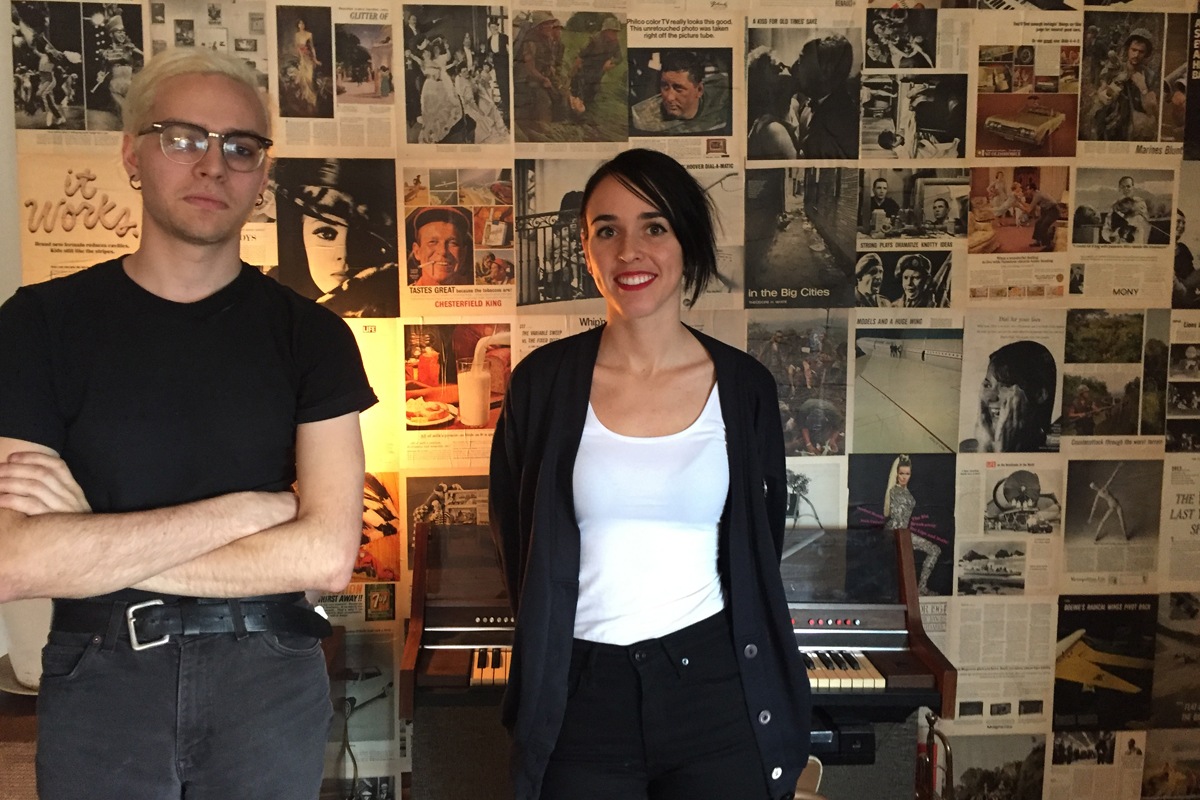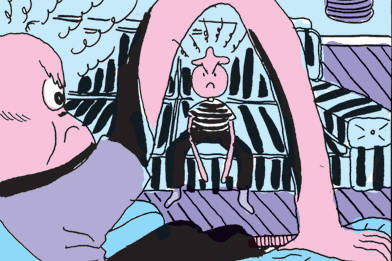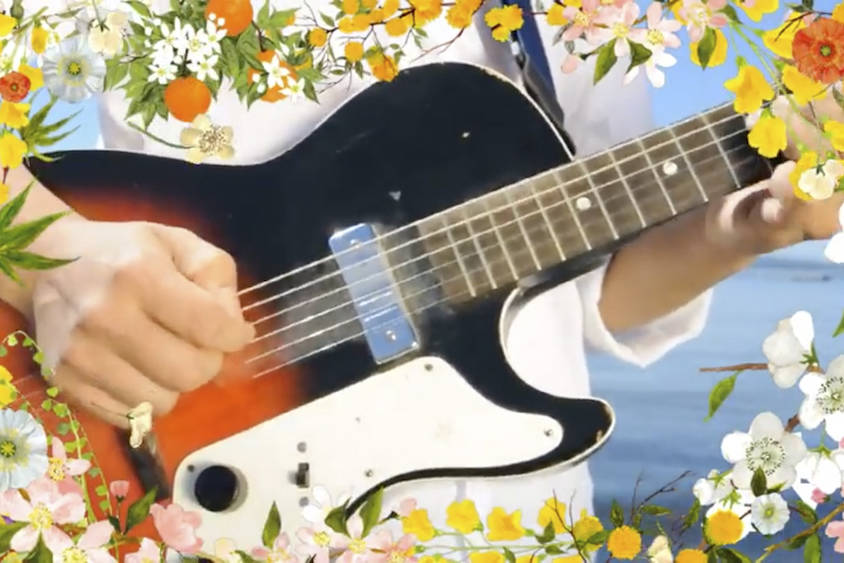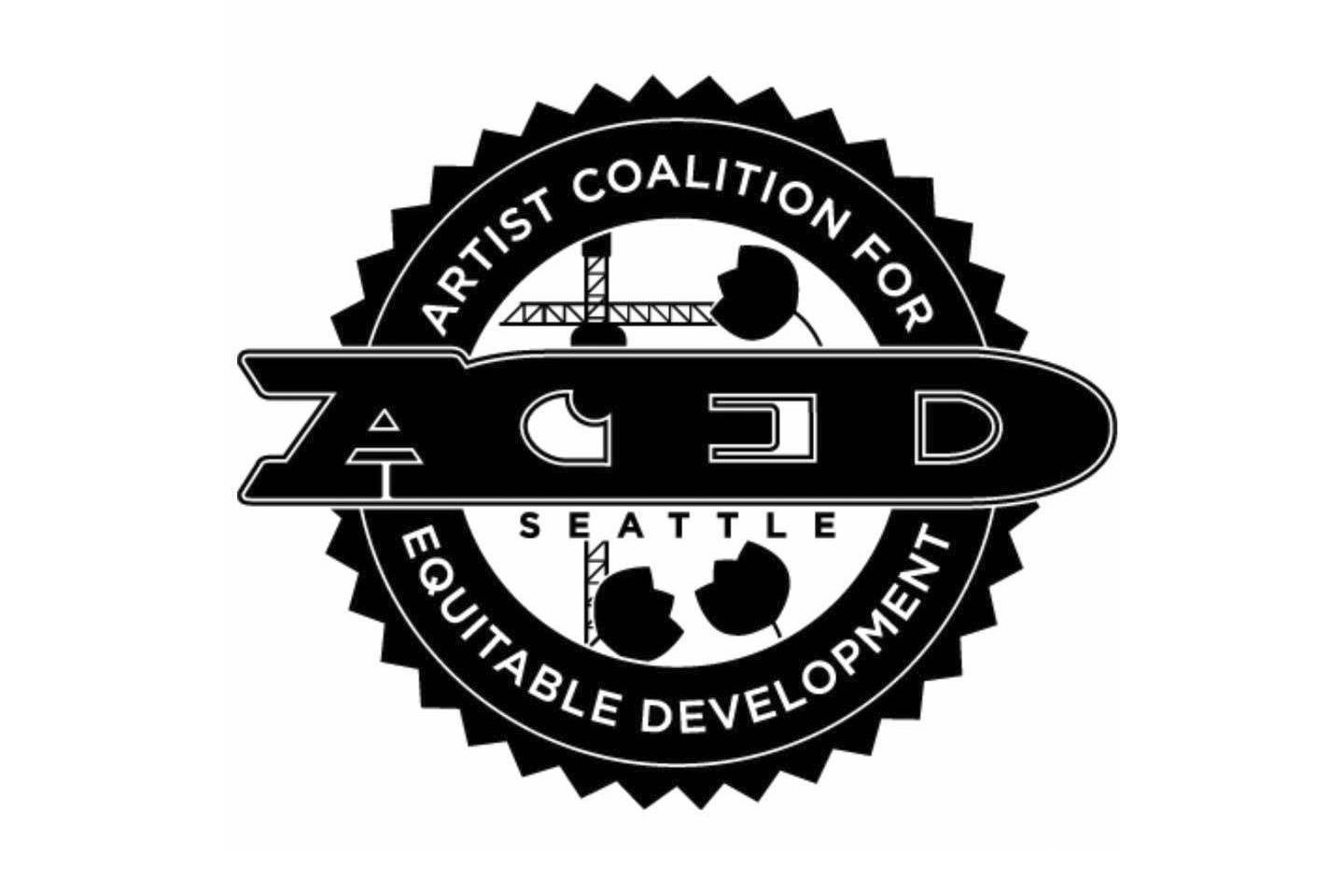Almost immediately after Trump’s victory, the media and bewildered liberals began to play the blame game. Blindsided, they pointed fingers in all directions: It was Bernie’s fault, it was third-party voters’ fault, it was the electoral college’s fault, the Democratic establishment’s fault, the FBI’s fault, the mainstream media’s fault, social media’s fault, Mercury in retrograde’s fault, etc. One of the more interesting, unexpected theories that cropped up, however, put a chunk of the blame where most would least expect it: artists.
In an interview with Artspace last month titled “Is the Art World Responsible for Trump? Filmmaker Adam Curtis on Why Self-Expression Is Tearing Society Apart,” the idiosyncratic BBC documentarian rips artists from the 1970s onward a new one. Criticizing art’s retreat into selfish individualism, elitist bubbles, and what he characterizes as politically ineffective self-expression, he calls for a new collectivist artistic paradigm. “You have to go into the woods at night together,” he says. “You have to be powerful and confident as a group. And you have to do this thing that I think a lot of modern artists and modern people in general would find very difficult to do: give yourself up to something that is bigger than yourself.”
Ten months before the Curtis interview, back in February 2016, two punks from the Seattle DIY community had already come to the same conclusion.
“The DIY scene is incredible and I have complete support for DIY, but I think it’s easy to get caught up in that bubble of your local scene and not really recognize what’s going on in the bigger picture,” says Ian Kurtis Crist. As a member of four music projects himself (Health Problems, Bosnia, Bat, Beret), one of the most prolific punk record producers in Seattle, and a regular presence at local shows, Crist found himself increasingly frustrated with the community’s inward gaze. “I’d just get pretty upset anytime I’d have a chat with a band and the whole conversation was ‘Our band! Our success in our scene! We’re finally climbing the social ladder!’ It’s great to have passion in your art, but when that’s all you think and talk about, I think it’s pretty narrow-minded and selfish.”
His good friend Erica Miller, frontwoman of local punk/no-wave group Casual Hex, felt very similar, and the two began discussing ways they might pop DIY’s bubble. When Display, a local no-wave group Crist recorded, had trouble finding a label for their album—a record both Miller and Crist believed very strongly in—they decided they might as well start their own label. “I’d had the idea kicking around for a while, so I brought it up,” Miller says. “Why don’t we donate a portion of what we make to a cause we support?”
“That became the building block for the whole idea of the label,” Crist says. “How can we do something where we’re putting out music we think is important that doesn’t necessarily get a lot of attention, but also benefits communities that are outside of our immediate bubble?” So they partnered with collaborator and zine-maker Lucas Reif, made a website, and got the ball rolling. Cheekily, they called it Good Person Recordings.
The thing about selling underground punk tapes is that there’s not a ton of money in it. Agreeing that three percent of their sales would go to a cause of their choosing, they also agreed that “giving what we get off tapes wouldn’t make much of an impact on its own.” At the suggestion of their friends in local post-punk group Vats, Good Person settled on the Rainier Valley-based Refugee Women’s Alliance (ReWA) as the organization they would center their first long-term efforts on supporting. In addition to the tape proceeds, Good Person decided they would also focus on setting up a number of benefit shows, from which they would donate all the profits. Rather than blindly donating money to a cause, Miller thought it would be best to directly involve herself in the organization as well—so the same February that Good Person Recordings started and identified ReWA as its cause, Miller began regularly volunteering there too.
“When we started 32 years ago, ReWA was a group of successfully resettled refugee women who wanted to help other women do the same,” says Wendi Lindquist, ReWA’s development and communications officer. Lindquist began working there a year and a half ago, spurred by the difficulty her husband faced immigrating to the United States as a flawless English speaker with advanced degrees, hailing from Sweden: “What must it be like for someone who has none of those advantages?” Lindquist began asking herself. ReWA looks to fill those resource gaps, providing English as a Second Language (ESL) classes, low-income child care and preschool services, job-training services, legal counsel, and workshops that help acclimate new refugees and immigrants to everyday urban life. On a recent field trip, ReWA handed out preloaded ORCA cards and taught clients how to use the light-rail system.
In November, after nine months of helping teach ESL classes and familiarizing herself with ReWA, working directly with the people it serves, and seeing firsthand where resources are most needed, Miller was connected with Lindquist and the two began to plan Good Person’s first ReWA benefit show, set for this Saturday.
While Lindquist notes that any help the artistic community can provide is more than welcome, she says that partnering directly and early, as Miller did, has the best results. “One advantage to collaborating with organizations like ours and reaching out early is that we can find ways to share and communicate our organization’s mission, services, and programming—that way it’s not a blind fundraiser. People know where the money is going, they know why the money is necessary, they know who we’re helping.”
Similarly, reaching out early and working directly can help identify where resources are most needed. “Sometimes people ask what they can do if money isn’t an option for them, so we talk about in-kind donations—can we ask people to bring in toiletries or diapers or winter coats? Those are still things our community needs. Having those conversations so we can make sure whatever is coming our way is our highest need or our client’s highest needs.”
The idea works similarly for artists who have only their skills to donate. Beyond Good Person, one of the more successful collaborations Lindquist has had came when an artist donated time to create a T-shirt design for ReWA. “We came up with an ‘I Will Stand With You’ design. So it’s a twofold thing—the artist is getting to express solidarity [and] give people who aren’t artists a way to express solidarity, and the funds are going to our programming.”
For Crist and Miller, who hope other artists start to harness their skills to work more directly with causes, the key is to pick a program or organization and “Don’t do it half-assedly.” “Really see what they’re trying to do with the program, and have some direct connection with it,” Crist says. “Make sure it’s not just that you want to throw money at something to say ‘Hey, look, I’m doing something.’ ”
One of DIYs biggest successes is how self-sustaining it is—after playing only a few shows, small bands can start to pay for tours, record and release records, and buy gear without dipping into their own pockets. With the enthusiastic and generous community it has forged for itself, Crist and Miller firmly believe now is the time to start asking how DIY might sustain something other than itself. Good Person Benefit for ReWA, With Dreamdecay, Health Problems, Casual Hex. Hillman City Collaboratory, 5623 Rainier Ave. S., goodpersonrecordings.com. $10. All ages. 7 p.m. Sat., Jan. 7. ksears@seattleweekly.com








